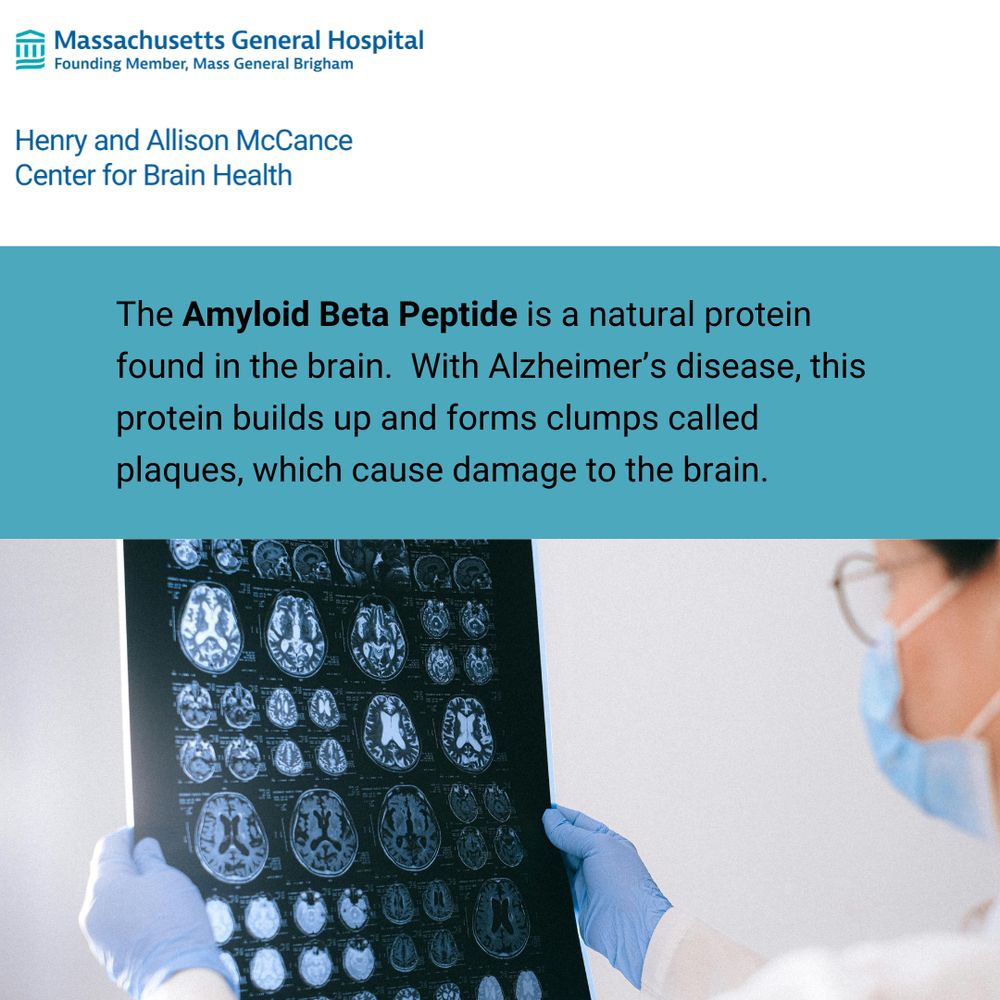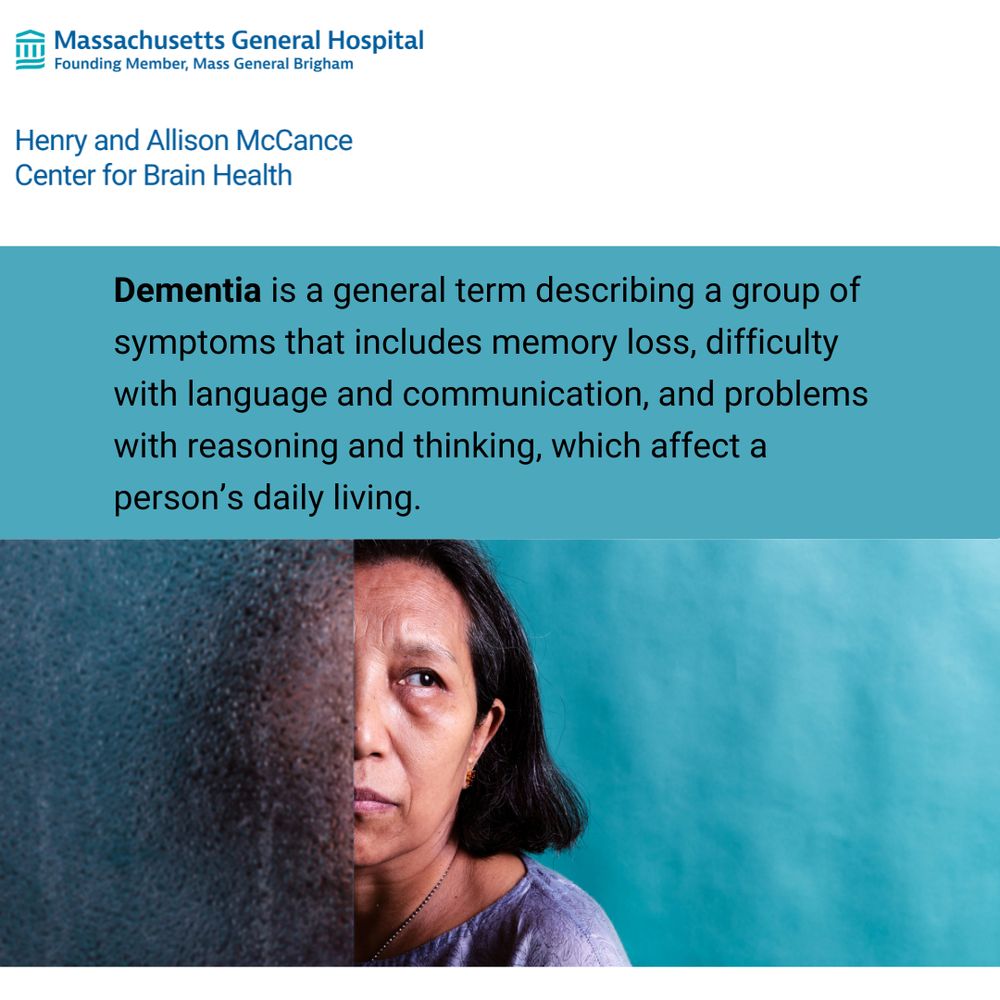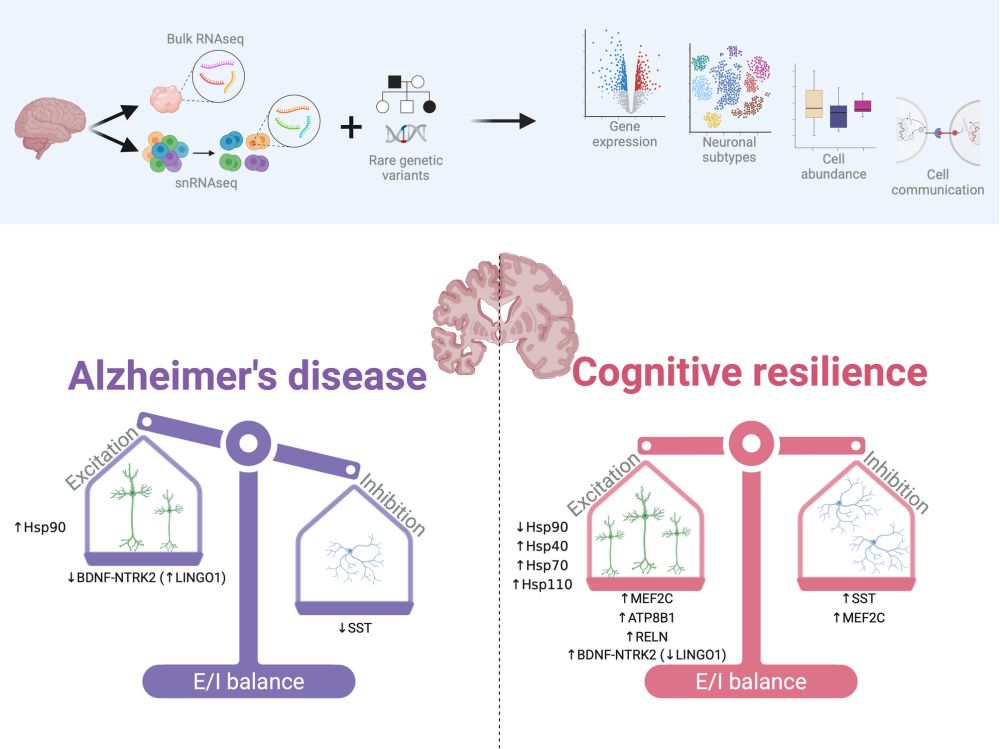Molecular hallmarks of excitatory and inhibitory neuronal resilience to Alzheimer’s disease - Molecular Neurodegeneration
Background A significant proportion of individuals maintain cognition despite extensive Alzheimer’s disease (AD) pathology, known as cognitive resilience. Understanding the molecular mechanisms that protect these individuals could reveal therapeutic targets for AD. Methods This study defines molecular and cellular signatures of cognitive resilience by integrating bulk RNA and single-cell transcriptomic data with genetics across multiple brain regions. We analyzed data from the Religious Order Study and the Rush Memory and Aging Project (ROSMAP), including bulk RNA sequencing (n = 631 individuals) and multiregional single-nucleus RNA sequencing (n = 48 individuals). Subjects were categorized into AD, resilient, and control based on β-amyloid and tau pathology, and cognitive status. We identified and prioritized protected cell populations using whole-genome sequencing-derived genetic variants, transcriptomic profiling, and cellular composition. Results Transcriptomics and polygenic risk analysis position resilience as an intermediate AD state. Only GFAP and KLF4 expression distinguished resilience from controls at tissue level, whereas differential expression of genes involved in nucleic acid metabolism and signaling differentiated AD and resilient brains. At the cellular level, resilience was characterized by broad downregulation of LINGO1 expression and reorganization of chaperone pathways, specifically downregulation of Hsp90 and upregulation of Hsp40, Hsp70, and Hsp110 families in excitatory neurons. MEF2C, ATP8B1, and RELN emerged as key markers of resilient neurons. Excitatory neuronal subtypes in the entorhinal cortex (ATP8B+ and MEF2Chigh) exhibited unique resilience signaling through activation of neurotrophin (BDNF-NTRK2, modulated by LINGO1) and angiopoietin (ANGPT2-TEK) pathways. MEF2C+ inhibitory neurons were over-represented in resilient brains, and the expression of genes associated with rare genetic variants revealed vulnerable somatostatin (SST) cortical interneurons that survive in AD resilience. The maintenance of excitatory-inhibitory balance emerges as a key characteristic of resilience. Conclusions We have defined molecular and cellular hallmarks of cognitive resilience, an intermediate state in the AD continuum. Resilience mechanisms include preserved neuronal function, balanced network activity, and activation of neurotrophic survival signaling. Specific excitatory neuronal populations appear to play a central role in mediating cognitive resilience, while a subset of vulnerable interneurons likely provides compensation against AD-associated hyperexcitability. This study offers a framework to leverage natural protective mechanisms to mitigate neurodegeneration and preserve cognition in AD.
























